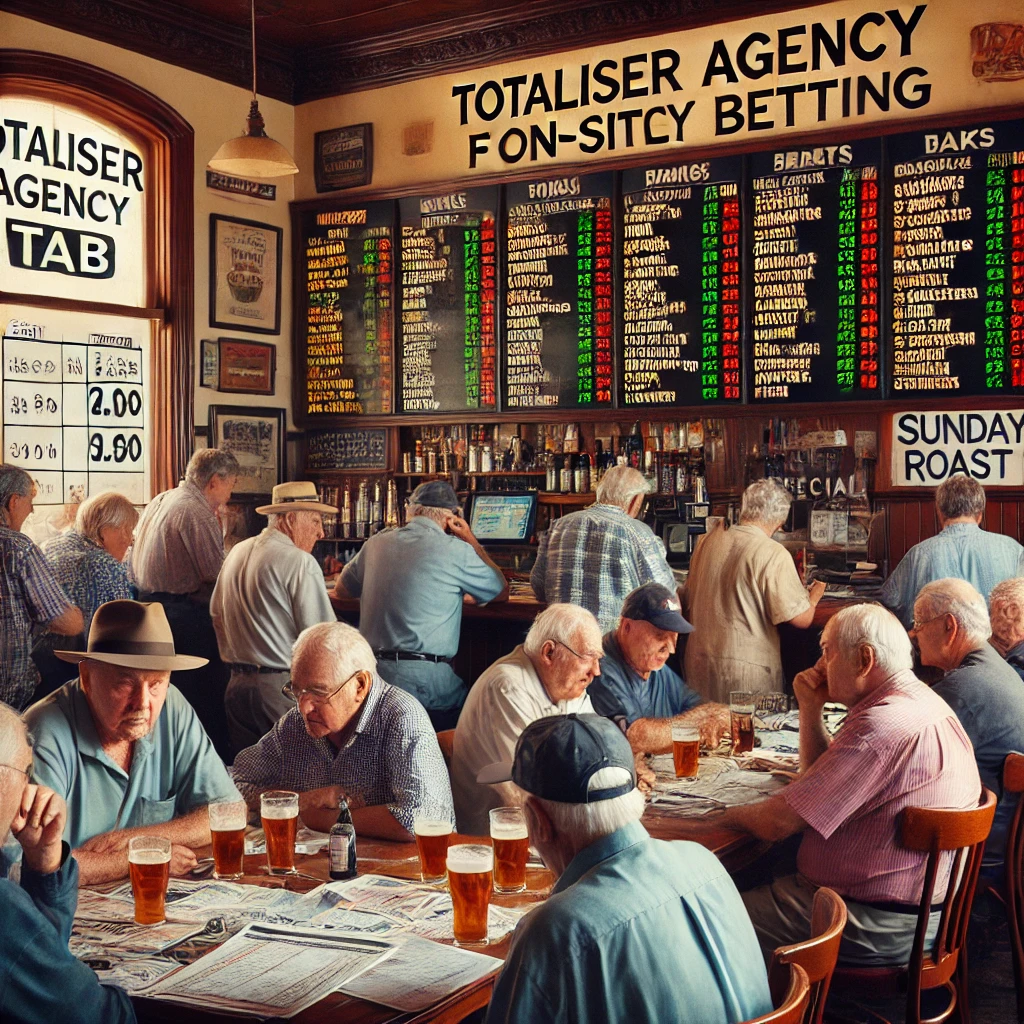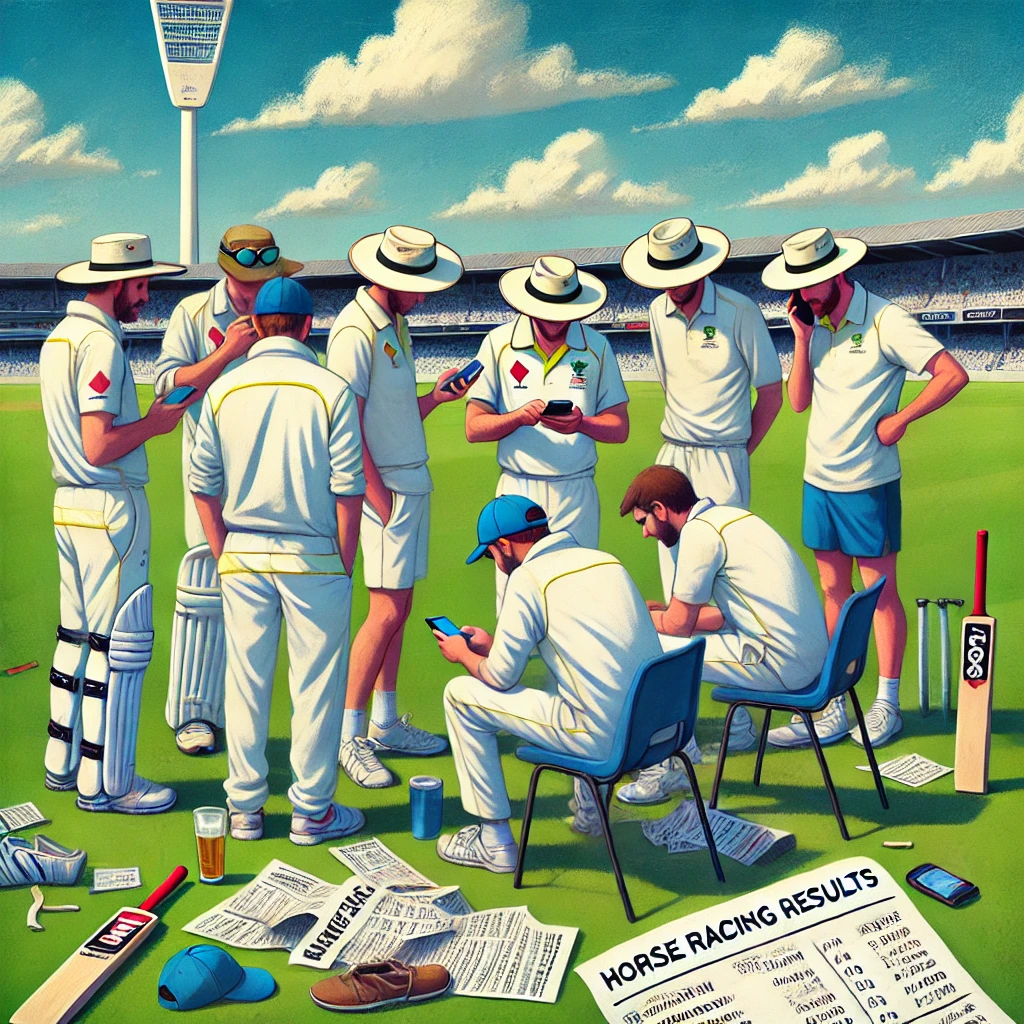Betting Research Inspiration



Mission
This site exists as a result of first-hand experience with the sports and racing betting phenomenon that exists in Australia. In Australia, betting (and gambling) is more than just a pastime. It is deeply ingrained in the cultural fabric of the nation. Australians exhibit the highest per capita losses globally with roughly 50% of adult men and 30% of adult women betting on horse racing and/or sports betting at least weekly, with the significant majority losing money as a result. Australia has had legalized horse racing since the 1800’s and sports betting became legal in 1983.
Given the tendency to bet and associated harm, there are many sites (including the External Links below) and organizations which promote responsible gambling and discuss the harms. The approach of this site is different. Inspired by the research-backed financial evidence messaging of Ben Felix, our mission is to inform bettors of published research associated with sports betting and racing. Given people will bet for all manner of reasons, we believe it is important to have informed bettors:
- armed with knowledge to be better bettors, where there may be favorable conditions to win or reduce losses
- understand psychological biases and their pitfalls
- avoid costly, predictable mistakes or betting all together
Using published papers helps reduce the tendency for hyperbole, and we do not sell or promote tips, systems and have no skin in the game. Where opinion or anecdotes are used to personalize content or add value, they are indicated as such.
Personal Insight
Growing up in Australia, I have forever been exposed to the betting industry despite not being directly involved. From an early age, fortnightly extended-family family gatherings would occur at various pub restaurants for the cheap Sunday roast special. These pubs would usually have a Totaliser Agency Board (TAB) connected which facilitate on-site betting. Although I don’t ever recall anyone in our party betting at the TAB, there would be a steady stream of men sitting at a side bar watching and betting on the horse racing, greyhound racing, Australian Football League (AFL), National Rugby League (NRL), soccer (football) or cricket. This was before the internet and mobile phones were a thing, so the demographic was fairly broad. As time went on and online betting became available, those at the TAB seemed to get older – presumably those who’d been going and betting for many years. Special occasions would be at the horse or greyhound tracks – not because we wanted to watch – just that the deals were great on race nights.
Outside of pub lunches and into my early teen years (still before the internet!), I began playing soccer and cricket. Even as kids, I recall the language extending to odds, probability and betting within our games. ‘What are the odds of that’ and ‘I bet you $5 you cannot hit a 6’. Please bear with me everyone reading this and not from Australia…
In later teen years (now with the internet), I began attending AFL games regularly. The AFL makes significant revenues from betting agencies and the advertising exposure helps this greatly. At the ground, the ad boards would switch between the major club sponsors and the betting agencies. Watching on TV would lead to an influx of betting markets, expert opinions on odds and recommendations to place multis. Not surprisingly a former AFL CEO became the CEO of… the TAB.
It was not until adulthood that I fully realized just how deeply embedded betting was in the country. I continued to play cricket and during the breaks, everyone would have their phones out to watch and discuss the horse racing. They would pool their money together and take it in turns each week to place a ‘researched bet’ or one recommended by a tipster, friend-of-a-friend or whatever else they felt gave them a competitive edge. At work, several people would describe the selection process they would go through before buying a share of a racehorse. No doubt for many this was simply entertainment, but for others, I can only speculate on what better uses they would have for the money.
With the buildup of exposure and being in the prime demographic (male between over 18 years old), of course I too ended up betting. I count myself as well informed on the sports, having played over 100 cricket games, been an AFL member over 20 years, put thousands of hours into soccer and am educated. I therefore tried many ways to generate a side income from betting using as much experience, research and data gathering as possible. Betting only what I could afford to lose. I found research papers to be particularly useful (hence this site) as they weren’t accompanied by a sales pitch, affiliate link or otherwise vested interest in parting me of my money. I discuss some of my experience on this site as anecdotes, but broadly I have experimented with:
- Tipsters
- Acting on owner information
- Knowlege of the games and players
- Player-based prediction models
- Following the crowds
- Contrarian betting against the crowds
- Arbitrage betting
- Sign-up bonus exploitation
- Bonus bet exploitation (which resulted in two account closures and one from preventing any further bonuses)
- Automated betting systems (steamers, drifters, favorites, long-shots)
- Value betting
- Using bookmaker odds, betting exchange odds and setting my own odds
- Daily fantasy sports (given I am regularly in the top 0.1% of season-long AFL fantasy formats)
I still bet, but only in specific circumstances and within limits that suit me. More than anything, I enjoy generating and analyzing data, which is what keeps me engaged in this space. It has been possible to turn a small profit which is then consumed by running costs of this site, journal subscriptions and software.

Improve Chances of Winning
Have your ideas questioned to see if you have potential for success and at least break even with your betting.

Reducing Losses
If you choose to bet, then be informed on what definitely does not work. Understand bias, bankroll management, persistent patterns, bookmaker strategies and more to avoid the traps. Have your ideas questioned to see if you are doomed to fail.

Published Research
There is no shortage of people willing to part your money from you in betting markets – they win when you lose. Published journal articles maintain integrity through peer review, methodology and transparency.